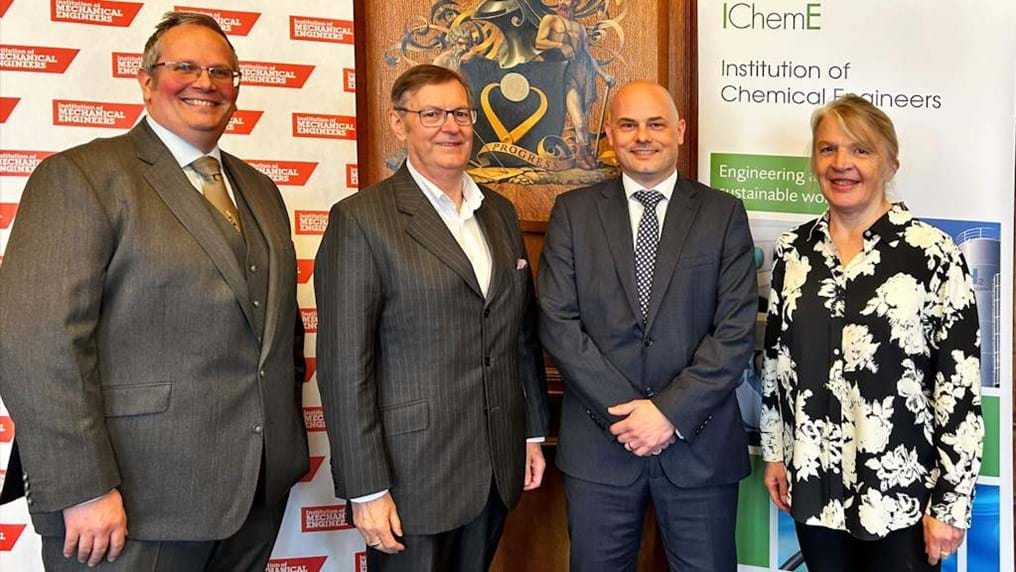IChemE convenes expert roundtable on reskilling in engineering in partnership with IMechE

17th April 2025
On 17 April, IChemE and the Institution of Mechanical Engineers (IMechE) brought together a range of experts for a roundtable event to discuss the importance of reskilling in engineering and how this should be addressed in the future.
The skills and expertise that engineers will need to draw on will continue to change over time, and many of the skills and expertise that will be needed in the future are not widespread in the workforce. Changes in artificial intelligence, digitalisation, automation and sustainable energy are transforming the engineering landscape, and coming years will doubtless see new technologies and trends that we cannot yet predict.
Yet the reality is that “80% of the 2035 workforce is already employed today”1. This means that reskilling will be vital to ensure that individuals are able to continue to be productive, and to ensure that the economy more generally is able to draw on the widest pool of talent as its needs change. Without effective reskilling, individuals risk having their skills become obsolete, and the workforce will not be able to meet the demands of future industries. If the UK is able to support its workforce in reskilling to meet the changing demands of the future, it will be able to ensure its global competitiveness, create new jobs and promote economic growth. But for this to happen requires a range of cultural, institutional and policy supports.
To explore this issue, IChemE and IMechE convened a roundtable, chaired by IChemE President Mark Apsey MBE. A number of themes emerged from the discussion, including the need to ensure that reskilling is made easy and attractive to employers and employees; the challenges of adapting to new styles of learning that are more flexible and modular; the need to promote CPD and a culture of lifelong learning; the importance of employers recognising transferable skills and experience (and the value of ‘squiggly careers’); and for a cross-government strategic approach to the workforce.
IChemE will be uploading an anonymised write-up of the discussion shortly. Find out more about the IChemE policy team and keep up with its wider work.
Links
1Royal Society of Chemistry (2025). "Future Workforce and Educational Pathways"
What is chemical engineering?
Chemical, biochemical and process engineering is the application of science, mathematics and economics in the process of turning raw materials into everyday, and more specialist, products. Professional chemical engineers design, construct and manage process operations all over the world. Energy, pharmaceuticals, food and drink, synthetic fibres and clean drinking water are just some of the industry sectors and products where chemical engineering plays a central role.
IChemE
The Institution of Chemical Engineers (IChemE) advances chemical engineering's contribution for the benefit of society. We facilitate the development of chemical engineering professionals and provide connections to a powerful network of around 30,000 members in more than 100 countries.
We support our members in applying their expertise and experience to make an influential contribution to solving major global challenges, and are the only organisation permitted to award Chartered Chemical Engineer status and Professional Process Safety Engineer registration.